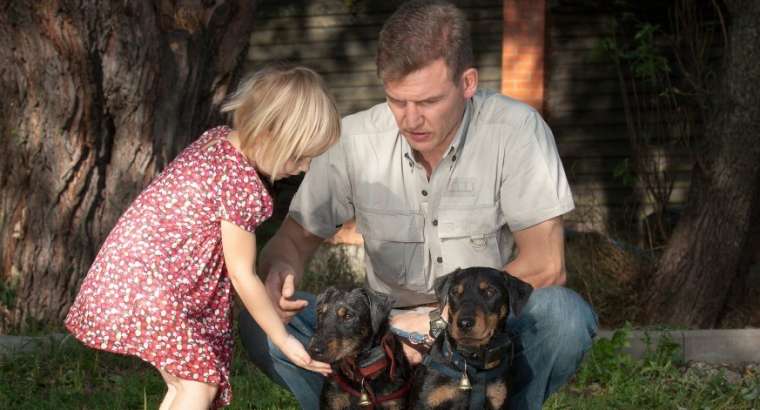 Puppies are ready for puppy training by 10 weeks of age. Starting at 10 weeks is a critical time for the owner to establish positive pack leadership.
Puppies are ready for puppy training by 10 weeks of age. Starting at 10 weeks is a critical time for the owner to establish positive pack leadership.
Ten to sixteen weeks is the most critical development time for a puppy and when it can easily acquire the skills it needs in behavior and socialization. The period between ten to sixteen weeks of age is a window in which a puppy can readily accept the training.
After sixteen weeks of age, the puppy starts losing his bounce back or recovery time. This means that things the puppy would readily accept under the age of sixteen weeks could be perceived as much more of a threat because the puppy was not introduced to it at the critical molding time.
After sixteen weeks of age, a puppy will start trying to create safe space by staying away from what it fears.
Exposing your puppy to socialization training early on prevents puppy shyness, excessive barking, chewing, anxiety, and depression (yes your puppy can become depressed). This is the time to set expectations so your puppy has a job to deliver on. Remember that puppies and dogs want to please.
Most important, early puppy training helps prevent aggression toward other dogs and people. Stop fears and phobias before they start. When fears are not addressed at an early time, these fears will soon turn into aggressive and protective behavior.
Outlined below is a Puppy Development Training Schedule Guide.
This guide can be used to assess if your puppy is on the right development schedule.
Puppy Development Training Schedule Guide
Under 10 weeks
- housebreaking – potty training (as soon as puppy comes home)
- crate training
- managing biting (mouthing)
10 weeks to 16 weeks
- behavior and socialization
- puppy management training
- positive reinforcement
Over 16 weeks
- basic obedience training
- basic on-leash training
- advanced off-leash obedience training

